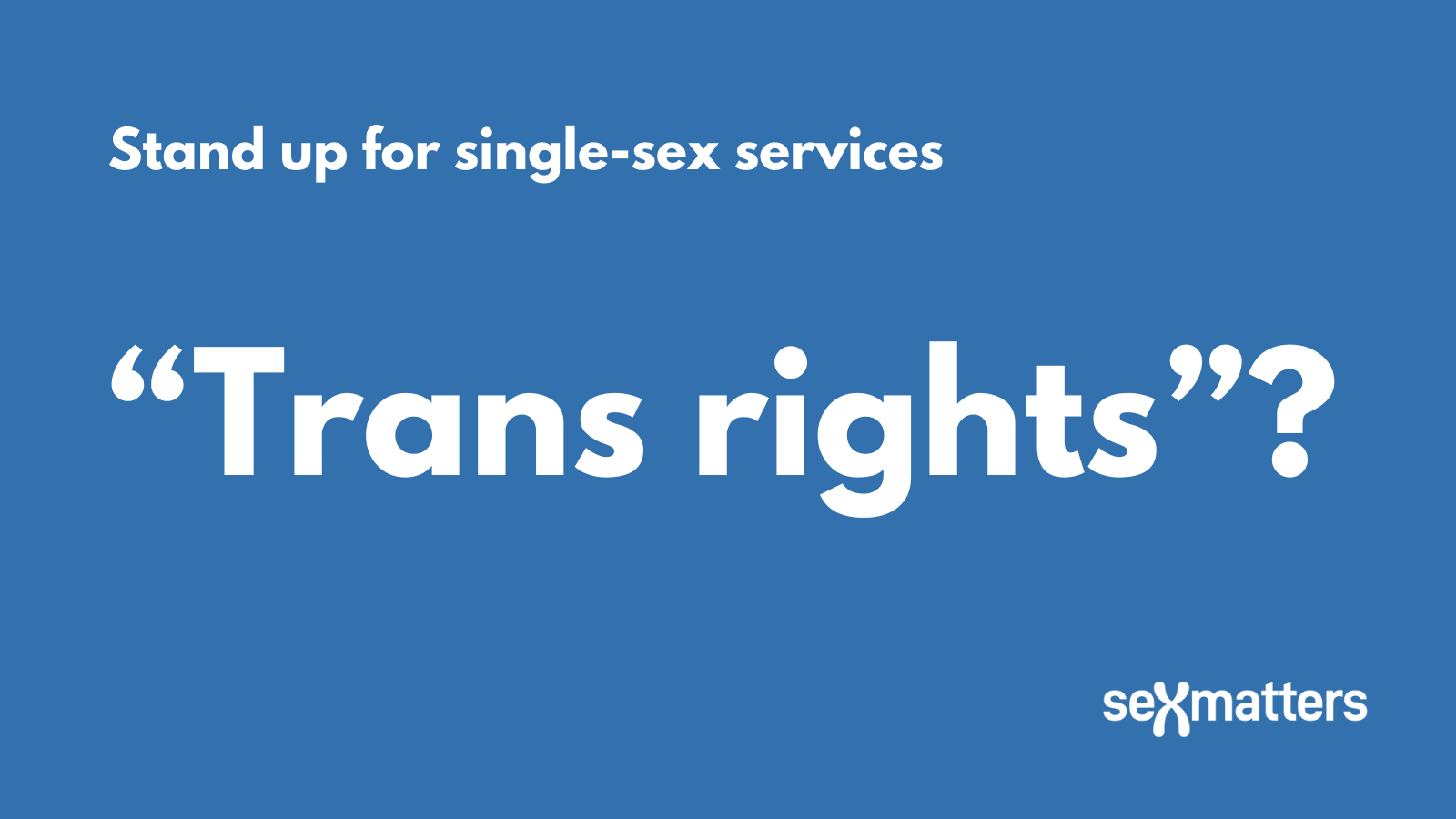This post is part of the Stand up for single-sex services campaign |
Why can’t we talk about women’s rights?

Trans rights are not women’s rights
Local and national politicians, chief executives of sports governing bodies, head teachers and leaders of NHS trusts all know there is a conflict between the demands of people with transgender identities and the single-sex exceptions in the Equality Act 2010.
Ask about single-sex services and the answer you get may well start with “I support trans rights”. That’s the tell.
A tweet by Joan Smith about BBC Woman’s Hour election special on 18th June noted:
“Asked what a woman is on @BBCWomansHour, most party representatives immediately start talking about the rights of trans people. They’re all women and the programme is called Woman’s Hour, but they take the question as an opportunity to talk about men.”
And at the Surrey Heath hustings this week, Liberal Democrat candidate Alasdair Pinkerton told the audience that even asking a question about women’s need for fair sport and single-sex spaces was possibly “malign”. Cathy Devine commented:
“Q: ‘What is your message to women asking for single sex services sports & care?
Lib Dems: ‘What this question is really asking … is about trans people right to exist.’
No @AlPinkerton it was a question about women’s rights. Women. Remember them? Half the human race?”
The requirement to treat people according to their claimed gender identity where that is different from their sex is counter to established sex-based social norms, and affects everyone.
But rather than acknowledge this difference explicitly, and the tensions that result, a question about women’s rights is often treated as an attack on trans rights. This simultaneously recognises the conflict and decides in favour of trans.
“Toxic debate”
Calls to talk about women’s rights are often dismissed as a “toxic debate”, followed by a call for calm discussion with “less heat and more light”. But why should women’s needs be seen as unduly heated? In practice, the call for less heat and more light from politicians is rarely followed by any listening or further discussion. It seems less like a request for discussion and more like a way to close down dissent.
Let’s shed some light on the key issues that arise when we can’t talk about who is male and who is female.
- When single-sex spaces become mixed sex, everyone’s privacy and dignity is compromised.
- People with a cross-sex identity may not get the right healthcare.
- Children are confused, as are people with learning disabilities.
- When male-free spaces are compromised, women and girls face greater risk of male violence.
- When identities are obscured, changed or misrepresented, safeguarding is made difficult and riskier.
- Gender non-conforming people may face harassment or discrimination.
- Those who request someone of the same sex for intimate medical or personal care, or for counselling, cannot be confident this will happen.
- Anyone who points out that a man is transgressing female boundaries risks censure and even job loss if that man claims a transgender identity.
- Crime statistics are distorted, as are other data about society.
- The ability to monitor and address sexism and discrimination is hampered.
- Homophobia, lesbophobia and transphobia may be obscured.
All of these matter to everyone, and should certainly concern politicians and policy-makers. It is responsible to flag the issues, and to engage in constructive dialogue to resolve them. This is not about trans rights. It’s about everyone’s rights, particularly those of women and children.
